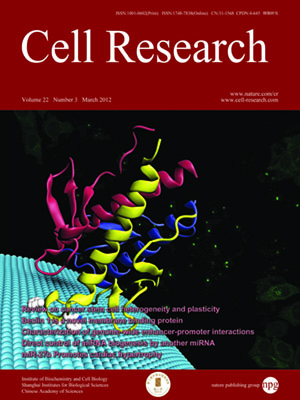
Volume 22, No 3, Mar 2012
ISSN: 1001-0602
EISSN: 1748-7838 2018
impact factor 17.848*
(Clarivate Analytics, 2019)
Volume 22 Issue 3, March 2012: 453-456
RESEARCH HIGHLIGHTS
An evolving picture of the interactions between malaria parasites and their host erythrocytes
Thomas E Wellems and Rick M Fairhurst
Laboratory of Malaria and Vector Research, National Institute of Allergy and Infectious Diseases, National Institutes of Health, Bethesda, Maryland 20892-8132, USA
Correspondence: Thomas E Wellems,(twellems@niaid.nih.gov)
In patients with malaria, Plasmodium falciparum parasites multiply to enormous numbers in the bloodstream, initiating processes of erythrocyte destruction, endothelial activation and microvascular inflammation that cause devastating pathological effects on host tissues and organs. Recent research casts new light on a mechanism by which hemoglobin mutations may protect against these effects, and on a critical receptor-ligand interaction that provides fresh opportunities for the development of vaccines against blood-stage infection.
Cell Research (2012) 22:453-456. doi:10.1038/cr.2012.14; published online 24 January 2012
FULL TEXT | PDF
Browse 2198


